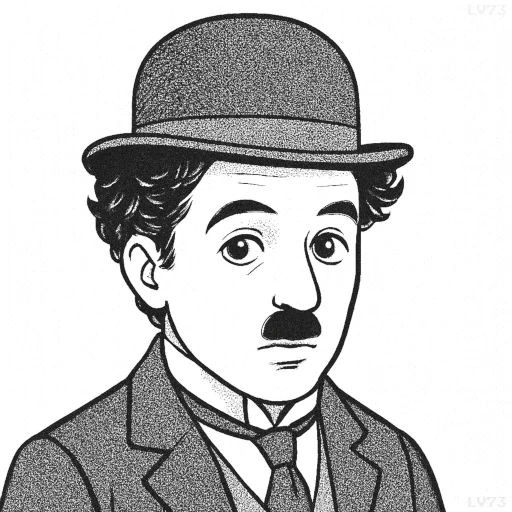“We think too much and feel too little.”

- April 16, 1889 – December 25, 1977
- British
- Comedian, film actor, director, screenwriter, composer
table of contents
Quote
“We think too much and feel too little.”
Explanation
In this succinct and powerful statement, Charlie Chaplin critiques the overemphasis on intellectual analysis and the underappreciation of emotional experience in modern life. The phrase “we think too much” reflects Chaplin’s belief that people have become overly focused on rational thought, logical reasoning, and mental calculation, often at the expense of genuine emotional connection and compassion. The second half of the quote, “feel too little,” suggests that in this intellectual age, people have become disconnected from their emotions, leading to a lack of empathy, love, and human understanding. Chaplin, whose films often emphasized the emotional and human side of life, believed that it is our ability to feel—to experience joy, sorrow, love, and pain—that truly connects us to one another and to the world.
Chaplin’s works, such as City Lights (1931) and The Kid (1921), are rich in emotional depth, showcasing the power of empathy and the healing qualities of love and kindness. The Tramp, often seen as a symbol of vulnerability and humanity, demonstrates how the emotional intelligence of an individual—his capacity to feel and act on feelings of compassion—can create moments of profound connection, even in a world that often seems indifferent or hostile. In Chaplin’s view, emotions like joy, compassion, and solidarity are not just human traits to be cherished—they are the essence of life and the true forces that can create change and meaning in the world.
In today’s world, Chaplin’s quote is a relevant critique of how modern society often prioritizes intellectual achievement, productivity, and technological advancement over the cultivation of emotional awareness and human connection. In an age of constant distraction, social media, and information overload, people are often caught in a cycle of overthinking and overanalyzing, leaving little room for genuine emotional engagement or reflection. Chaplin’s statement is a call to embrace the full spectrum of human experience, to feel more deeply, to connect with others on an emotional level, and to use our emotions as a guide for deeper understanding and action. In a world that sometimes feels fragmented and disconnected, Chaplin’s words remind us that feeling deeply—not just thinking critically—is essential for living a truly human life.
Would you like to share your impressions or related stories about this quote in the comments section?
